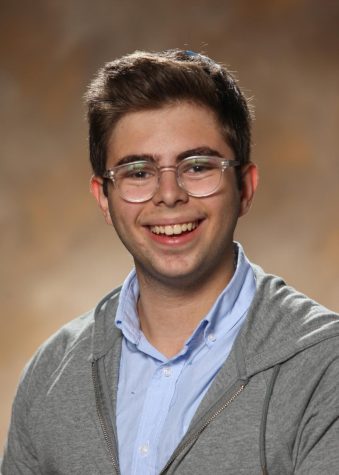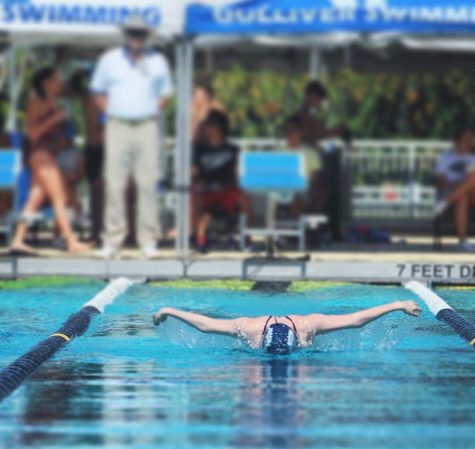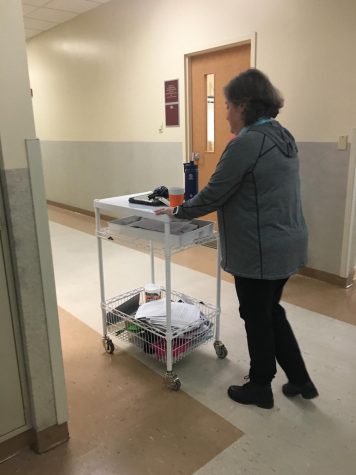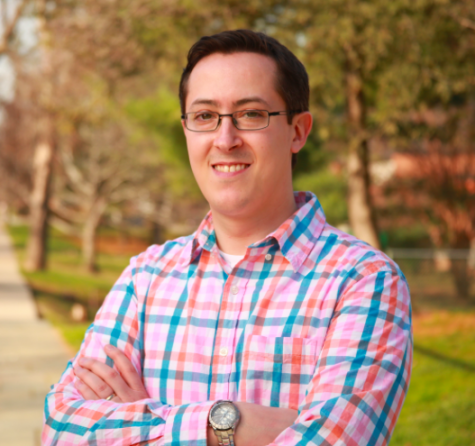Q&A with Alan Gross
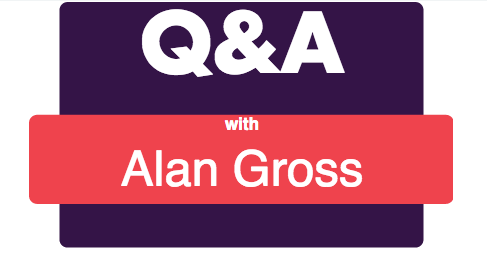
1. On “60 Minutes” you said that after your first trip you wrote in a letter to your supervisor that you were “playing with fire,” yet you kept going back to Cuba despite the danger.
Well first of all, I didn’t really have a supervisor. I worked as a subcontractor to a larger company and their project management people, who I submitted trip memorandum. And each trip that I made to Cuba made me more ill at ease. Then I heard about these Canadians who had come down with similar equipment to what I had brought in, and they were arrested and they were held for two weeks and then they were deported. It was in that context that I felt I was “playing with fire.” Number one and number two, I had a contract for a certain amount of work that needed to be done, and I take my contracts very seriously. So I returned, I didn’t feel like my life was in jeopardy. I didn’t feel like I was going to be arrested and held for five years, but I did have a contract that I was required to complete. So that’s why I went back. The fifth trip in the project was going to be my last trip.
2. Did your project managers expect you to go back to Cuba? Was there an expectation that you would finish up what you were supposed to do?
Well I did finish what I was supposed to do. I finished everything that I was supposed to do. And from a technical standpoint, for the technical project that I had, it was a total success.
3. Were the Cuban people working for your release?
No, I don’t think so. I think that they walk a very fine line. For example, there are relatively few dissidents in Cuba. Maybe 100 at most, and they essentially are paid by the U.S. government, not all of them, but probably a majority. [They’re paid to] voice their opposition. I consider them to be patriots, not dissidents, but it’s very easy to get into trouble in Cuba, as I learned the hard way. I think that it would have been very difficult for Cubanos to try to demonstrate on my behalf, particularly in the Jewish community, where they walk an extra fine line.
4. Did your family support your decision to return to Cuba?
Well you know, I’ve worked all over the world. A lot of times, my family wouldn’t want me to travel to certain places because of the danger. Cuba wasn’t one of those places. As far as danger is concerned, it was one of the safest places I’ve ever traveled to … They didn’t recognize what I was facing. I didn’t see it either. I didn’t foresee it at all.
5. Did you believe in the work you were doing in Cuba?
I did not go there with any ideological motivation … The project itself was a technical project. It was to see if we could set up a more efficient and more effective, from a technical standpoint, broadband internet. The fact that I chose the Jewish community to do this with made it more palatable for me. It made it more appealing for me to work in this beautiful island with the Jewish community. I would not have done it if the Jewish community did not want me to, but we made inquiries before I went there, and they were very receptive, so that made it appealing to me. But as far as political ideology, if that’s what you were getting at, there was no political ideology then. Now there is. Then there wasn’t.
6. Did the fact that you were helping Jews change your opinion on whether you wanted to help or not?
It’s one of the things that drew me to the project. I did not seek out this project. The company that I subcontracted from approached me. I did solicit the business. They came to me because they knew I could do the technical part. What made it more appealing to me was the Jewish component.
7. In the five years that you were held captive, did your personal religious beliefs change at all?
I think that from a religious perspective, no. It was a matter of expectations. Expectations changed, and I had no expectations that anyone would come to my aid, and I was wrong, because the Jewish community and the United States came to my aid. So, in that context, what I worked towards for the better part of my adult life, in supporting the Jewish community through financial commitments, through activity commitments, it was almost as though that became the premium payment on an insurance policy that I didn’t know I needed. And then thank goodness I was able to take advantage of that insurance policy when I needed it, because literally tens of thousands of members of the American Jewish community sent emails to the White House, to the President, to the Chief of Staff. So many people took place in the weekly vigils across from the Cuban intersection in Washington, organized by the Jewish Community Relations Council (JCRC), and so many things across the country organized nationally through JCRC, federations, synagogues and various organizations. I appreciated that. I’ve been very thankful for that.
8. At any point in Cuba, did you question your beliefs?
No, never. I had a Tanach with me, I had a siddur with me. I didn’t consult it on a daily basis, but I did use it on a regular basis. I’ll tell you something, this is interesting. When people started sending me these cans of salmon from Costco, and I started accumulating these cans, they’re really well packaged, you know I had a stack of them and I would share them with my cellmates as they would share these things with me from their families. But we would only eat the canned salmon on Friday night, and so one day my one of my cellmates asked me, “Why, how come we only have this on Friday nights?” And I said, “We need something to separate one week from the next.” Every day was the same. Every day was the same thing, but Friday night we had salmon and that made one week different from the next, and if that’s not Shabbat, I don’t know what is. I said, “This is what we call Shabbat.” And my cellmates said, “Oh, American night!” And I said, “No, it’s Shabbat,” and they understood.
9. You told “60 Minutes” that you thought of the Holocaust very frequently and that you thought of how your relatives survived it. Why did that give you strength?
Well I thought about my family. There was a family that lived in a village outside of Munkash which was, when my father’s family lived there, was part of Hungary. And when they lived there, it was part of Czechoslovakia, and now it’s part of Ukraine. And when everybody in this family died, there was six brothers and one sister from this nuclear family that survived. Four out of the seven were in concentration camps. Two were in labor camps yet, they all survived and eventually made it to the U.S. Now I knew that my ordeal was not nearly as bad as their ordeal, and I also knew that if they could survive what they went through, then I probably come from strong stock and that I would probably survive. So, I thought about them. It gave me hope and inspiration that I’d get through this.
10. Do you know what happened to the technology that you set up in Cuba?
It was confiscated by the government of Cuba. It was all confiscated.
11. Do you support opening relations with the Cubans again? Why?
Absolutely, if we have had diplomatic relations with Cuba for the last 55 years, then I probably wouldn’t have had to sacrifice five years of my life. This whole idea of constructive engagement is not just an exercise in paying lip service. I think nothing is really accomplished in a war or in a cold war, but many things are accomplished when parties sit down across from each other trying to work out an accommodation for each other and with each other.
12. Opening relations also benefits Cuba’s government; do you have any conflictions with this?
No. There’s no conflict there, it benefits our government too. If you want me to get real detailed, I can tell you how. First off, it does not benefit the Castros. The Castros are totally irrelevant to Cuba’s future. They have a few years at most. [In] Cuba’s future, if they survive, they will have to part from Fidel’s way. And Raúl is a transitional figure, and so if they know that there are good things facing them, ahead of them, they can work towards that. It benefits them. There’s nothing wrong with that. Since we’ve begun to move towards normalization, it’s taken years. Since we’ve been moving in that direction, the government of Cuba has already renegotiated its foreign debt with the Paris Club. It has begun negotiations with the U.S. regarding a formula for restitution for the American companies that lost everything to the nationalization after the revolution. Furthermore, In Obama’s first term, he eased restrictions on remittances to Cuba. That means Cuban-American families who send money to Cuba were highly restricted prior to Obama’s first term. So he eased restrictions on remittances, then the government eased restrictions on the private sector, not all, but some. Then low and behold, remittances increased. Then the government of Cuba further eased restrictions on the private sector by allowing non-family employment, meaning that previously if you didn’t belong to a family, you couldn’t’ be payed to work in a private company, now you can. Now, so here we are, the fifth point in the sequence. More than 11 percent of the Cuban workforce works in the private sector. More than 500,000 people work in the private sector. That means more than 500,000 people are no longer dependent on the government of Cuba for their income, and they make a higher income than the national monthly average in Cuba. Now, that’s in everybody’s interest: everybody’s, especially ours, so it’s a good thing.
13. What was going through your mind when you found out you were being released?
Well, nothing really, because I didn’t believe it until I got on the plane and we took off. I talked to my lawyer the day before, and on the 16th of December 2014, he said, “Alan, we’re coming down tomorrow to get you, we’re coming down on Airforce One Alternative to pick you up and take you home.” I said, “Okay, Scott … Thanks, I’ll see you tomorrow.” He said, “No really, Alan, we’re coming down tomorrow. You’re going home.” I said, “Fine, I’ve been down this road before.” I said, “When I get on the plane and we take off, then I’ll celebrate. Until then, it’s just another day.”
14. So this had happened before? How many times?
I was pretty much kept in the dark by our government in the U.S. They didn’t really tell me much, they certainly told me nothing the first three and a half years. The Cubans told me nothing, although once in awhile to a Cuban official I’d say, “What’s next?” And he’d say, “You’re going home,” which was totally untrue. Then another time, my wife was told I was going to be released in May of one year, I don’t know which year, and she said, “Maybe we should plan to go to Italy on vacation to celebrate.” And off course that never happened. It was something that I totally ignored in the first year. I just totally ignored it until I got on the plane.
15. And as you stepped onto the plane, what were you thinking?
As I was approaching the plane on the tarmac, and it said “United States of America” on the plane, I just had chills. I was just thrilled. I hadn’t seen anything like that in five years, except in reading material. But to see this plane, the “United States of America” in pretty big print, that was pretty exciting. And then when I got on the plane with Senators Leahy and Flake and my Lawyer, and I got on the plane, I thought, “Wow, this is a pretty neat plane.” It was a beautiful plane. I wouldn’t mind having it.
16. What would you have done differently with your experience in Cuba?
If I had known that it was illegal to distribute anything in Cuba funded in full or in part by the U.S. Government. It’s not my job to go into any country and intentionally violate the laws of that country, and it should not be the job of any U.S. agency to do that, certainly not the Agency for International Development. That’s not what they’re supposed to do. They’re supposed to strengthen the laws of the country, not violate them. Had I known that, I wouldn’t have done the project.
17. Regarding social action work, what do you believe is the role of young American Jews today?
Well, I think that’s a really relevant question because I asked myself often what tipped the scales in the right direction so that the President could make a very courageous and historic decision to bring me home. He was the only one who could make that decision, and with all of the activity taking place, with my lawyer, with the Justice Department, State Department, National Security Council, State Department to a much lesser extent, and some very very tenacious members of Congress, from both houses and from both parties, I have to ask myself, what tipped the scales in the right direction? And the answer is: everyone, especially the Jewish community, who lead a grassroots effort to bring me home. I can’t say who is the most responsible for my being here today, other than everybody, and the social action from my community, from our community, our kehillah, was an incredibly important aspect of my redemption, of my freedom. I don’t know that I would be sitting here today if not for the social action of members of my own community.
18. Do you think that young American Jews should be taking risks similar to what you did?
I think that when people make decisions they need to make sure that they have enough information to make the right decisions. That helps mitigate risks. Would I do it again knowing what I know now? No. I wouldn’t have done it. If I had all of the information that I should have had that was withheld from me by my government and their contractor, I would not have done this. But have I taken risks? Maybe we need to define what it means to take a risk. Have I engaged in activities that are more risky than the norm in various countries around the world? Yes I have. Has it always involved the Jewish community? No it hasn’t. Has it involved the Jewish community more often than not? When it comes to risk, yes it has. Would I encourage other people to do what I’ve done? I think it’s more important for people to decide what they want to do, not what I’ve done. When it comes to taking risks, there’s an expression ‘no risk, no reward,’ I don’t like that expression. I think that it does not consider variables. It’s not that easy. If people believe in something and they’re committed to something, sometimes demonstrating that commitment involves risk and I can’t speak for anyone else. I really can’t.
19. You just mentioned the government withholding information, are you still mad at the U.S. government for that?
I was really angry with both governments, and I think that … I’m much more interested in the next five years than the last five years.
20. Speaking of the next five years, what are your plans for the future?
Well, first and foremost, my wife and I are going to be grandparents in February, and that will probably play prominently in our activities. Our daughter lives in Israel, so we’re going to Jerusalem. And we have another daughter in Portland, Oregon, who is a science teacher. So, between our two daughters and their families, we automatically have travel in mind. I have been doing a lot of speaking engagements. Some of them have even been paid speaking engagements, and I enjoy that a lot and I’ve crisscrossed the country this year. People wanted to hear about my experience, and I wanted to thank them. I’ve been talking about my Cuban experience, and I thank them, and now I’ll never run out of people to thank, and I’ll never know all the people whom I need to thank. But, I’m shifting gears a little bit in my presentation to providing some economic information on why normalized relations is positive for both countries, and that my experience and that the things that influence me are not solely based off of five years in Cuba, but 35 years and 54 countries. I’ve worked literally all over the world, and the focus of my work has been export and investment development and communications to connect people with their markets, so I’m slowly shifting into that direction again. I’m not going back to my old career, because I think those days are behind me, but that doesn’t mean I’m giving up my [international] involvement.
21. Since your return, how have you connected with the local Jewish community?
One of the first things I did, I went to New York and spoke before the Council of Presidents of Major American Jewish organizations. Then I think I went to Dallas, where my sister and her family live, and I went to my great nieces my great nephews day schools and I spoke there. I spoke at the Jewish Social Services Agency annual meeting, and I went to a reception that JCRC had for me; that was an incredible experience. I spoke at the Jewish Federation in Los Angeles, and I’ll be speaking at the Federation of South Beach County. I went to San Antonio, and spoke in a synagogue; that’s in addition to the non-Jewish stuff I’ve been doing. I spoke at a fundraiser for the New Cuba PAC, Political Action Committee, in Miami. I spoke at a fundraiser for the Center for Democracy in the Americas in Oakland, California. I spoke in the House of Hope Presbyterian Church in St. Paul, Minnesota, and Florida Atlantic University in Jupiter, Florida. In a couple of weeks, I’m going to Boca, and then I’m going to Boston College, and after that, I’m speaking at Old Dominion University in Norfolk. Between Boston College and Norfolk, I’ll become a grandfather.
22. Do you consider yourself a hero?
You know, I have a problem with that. No, I don’t. I don’t think I did anything extraordinary, aside from surviving with everything intact. I think that what we need is for more people to have commitments to Jewish Community, to kehillah, and I don’t know necessarily that my expectation is for everyone to do what I do, or that I should do what everyone else does, but I think it’s really important that we remain engaged with our community. I had this epiphany that the financial support and the activity support were just like insurance policies. Pay premiums on insurance policies, like you know you pay insurance for life insurance or your car or whatever and you never think you’re gonna need it, so you pay into this and you’re betting against the odds that you’re going to need it. I never knew that I would need the help from my community, the kind of help that I received. It was ironic, here I was, or there I was, trying to connect Cubans to the rest of the world, and then I became totally disconnected from the rest of the world. Here I spent a better part of my adolescent and adult life working on activities for the Jewish community, so that our beneficiary agencies can provide direct service, and BAM! I became a beneficiary myself, and it was an epiphany. I went to the State of the Union. My wife and I sat in the First Lady’s box, in the gallery, and there were 22 people there. I was there with 21 other people, and 21 of the 22 people were there because of something they intentionally did. I wasn’t there, because I intentionally went to Cuba and got arrested. I went to Cuba intentionally, yes, but I didn’t intentionally become imprisoned to go to through this ordeal. That does not make me a hero.
23. What is it that you say to people that call you a hero?
I really don’t know how to respond to that. I think everyone should be their own hero. If they do what’s right, than they’re a hero. “Do the right thing”; Spike Lee said it.


